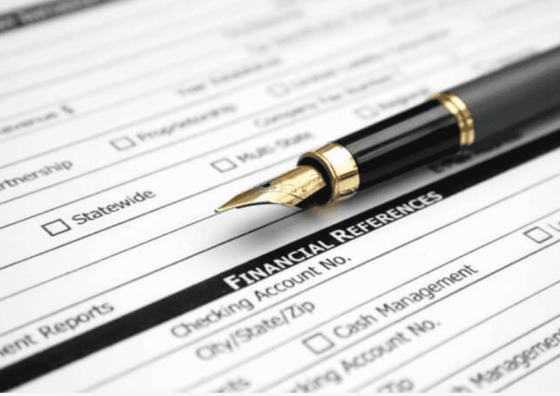What increases your total loan balance? Is it the interest rate, the length of the loan, or something else? And more importantly, how can you lower it?
There are five primary factors that affect your total balance. If you want to understand how they work, keep on reading.
Why Did My Balance Increase?
The total student loan debt in the US amounted to $1.73 trillion in Q1 2021, and today it’s estimated that it amounts to $1.75 trillion.
Students frequently gripe about owing more loan payments than anticipated. But why is that so? What causes your total loan balance to jump?
There are five primary factors that affect the amount of debt you’ll ultimately owe.
1. You Pay Less Than the Agreed-Upon Amount
This one is pretty straightforward — if you don’t make your full monthly payment, your interest rates will continue to accrue, and you’ll end up owing more money in the long run.
So, if you want to avoid having a higher balance than expected, always ensure you’re making at least your minimum monthly payment on time.
For example, if your average interest rate on a student loan amounts to 5% and you owe $40,000, you can make a payment of $1,000 after the first year. This means the remaining principal amount is $39,000. However, the interest will be $2,000. Therefore the total value of your loan will be higher, i.e., $41,000.
In other words, if you want to pay down your debt, you need to make a payment that covers principal and capitalized interest. In this case, you’d have to pay over $3,000.
2. You Delay Your Payments
Most individuals do not pay off their debt right away. Instead, they begin paying back the loan when they have the chance. This is especially common with student loans since most students don’t have enough cash on hand to start paying off their debt while studying.
However, if you stop making payments or put off them for a while, your interest capitalization will increase (i.e., the interest that is added to the balance of your loan when you defer or forbear your loans).
So, what can you do? Most lenders will give you a six-month grace period (or nine months for Perkins loans) once you finish your studies to have enough time to pay your loan. During this period, you should find a job and start making payments on your loan.
3. You Got an Extended Repayment Plan
An extended repayment plan allows you to defer paying back your student loan for 10 to 25 years. While it appears to be a viable solution, you should also be aware that the longer you pay off your debt, the higher the student loan rates will be.
So, if you want to pay off your student loans as soon as possible, you can choose a shorter repayment plan.
Moreover, if you have concerns about repayment options, contact your student loan service. The loan servicer is a cost-free business that manages your federal student loan payments and other services.
4. You Used a Federal Income-Driven Plan
An income-driven repayment plan is a repayment plan that adjusts your monthly payment to an affordable amount for you, based on your earnings and family size.
If you’re on an income-driven repayment plan, you will have lower student loan interest rates. But, there’s a catch. The repayment period is often 20 or 25 years.
This means that you’ll end up paying more interest over the life of the loan.
5. There Is an Error
Sometimes an error, program failure, or some other miscalculation can cause your balance to increase. If this happens, make sure to contact your borrower.
You may prevent this problem by making copies of your loan statements and paperwork. You could also be required to file a complaint with the Consumer Financial Protection Bureau.
How to Check Your Student Loan Balance
To determine your federal student loan debt, visit the Federal Student Aid website. Here you’ll find all the information you need on federal student loans. For example, you’ll see how much you’ve paid toward your loan and how much interest has been charged to it so far.
You’ll only need to create an FSA ID.
Although the Federal Student Aid is a useful starting point, if you want to access more specific information about your loans, like the payment history, you should go to each servicer’s website individually.
On the other hand, if you have a private student loan, you can check your balance (or find out who your lender is) by getting your credit report from Equifax, Experian, or TransUnion.
Your credit report includes a record of all your current financial obligations, such as student loans. By checking it, you’ll find out how much you owe and who’s your loan servicer.
If you want to start making payments or begin the student loan refinancing process, reach out to your loan servicer.
How to Decrease Your Student Loan Debt
If you want to lower your student loan balance, there are a few things you can do:
- Enroll in autopay: lenders often provide a reduction in interest rates (usually 0.25%) to students who set up automatic payments. This could save you a lot of money in the long term. While some lenders will limit your automatic monthly payments to the absolute minimum, others will allow you to make any payments you want. So, how can you reduce your total loan cost? If your lender allows you to make more than the required balance, you may speed up the repayment process by paying more than the required amount.
- Pay off interest before it capitalizes: interest usually builds up while you’re still studying, whether or not you make payments during that period. Accrued interest will be added to your balance if you don’t make payments while in school, resulting in an overall increase in the amount you owe. So, if you can, start making payments while you’re still in school.
- Refinance your student loans: refinancing is a good alternative for individuals who have private student loans, private and federal student loans, or wish to take advantage of the low interest rate on student loans.
Refinancing is basically taking out a new loan to pay off your old one. When you refinance, you’ll take out a new loan with a private lender to pay off your existing student loans. This way, you’ll have one monthly payment to make instead of multiple payments.
However, if you have federal student loans, you will lose access to various federal protections, like forbearance, PSLF, and deferment. Furthermore, refinancing does not always ensure a lower rate of interest. On that note, you should use refinancing only if you are not able to get into federal forgiveness programs.
Conclusion
Several things can cause your student loan interest rates to increase. These include choosing an extended repayment plan, using an income-driven repayment plan, having an error on your account, paying less than the agreed-upon amount, and delaying your payments.
So, if you want to lower your total balance, you can try enrolling in autopay, making extra payments, or refinancing your student loans.
FAQs
What increases your total loan balance, interest accrual or interest capitalization?
Interest accrual will increase the balance of your loan while you’re in school and during any periods of deferment or forbearance. On the other hand, capitalization will occur if you don’t pay the accrued interest on your loans, and it will cause your total balance to increase.
What can reduce your total loan balance?
The best way to reduce the balance of your loan is to enroll in autopay, pay off interest before it capitalizes, and refinance your student loans. You can also pay your debt during the 6-month grace period or while you’re still looking for employment.
What happens if you don’t pay your student loans?
If you don’t pay your student loans, you will go into default. This can damage your credit, make it difficult to get a loan in the future, and lead to wage garnishment. However, once you find out what increases your total loan balance, you can make a plan to lower it.






